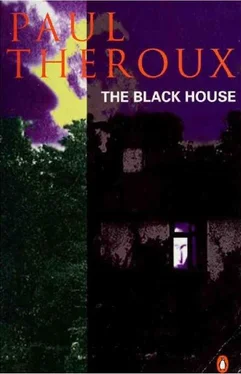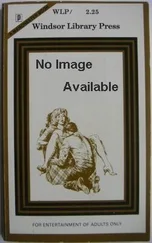Paul Theroux - The Black House
Здесь есть возможность читать онлайн «Paul Theroux - The Black House» весь текст электронной книги совершенно бесплатно (целиком полную версию без сокращений). В некоторых случаях можно слушать аудио, скачать через торрент в формате fb2 и присутствует краткое содержание. Год выпуска: 1996, Издательство: Penguin Books, Жанр: Современная проза, на английском языке. Описание произведения, (предисловие) а так же отзывы посетителей доступны на портале библиотеки ЛибКат.
- Название:The Black House
- Автор:
- Издательство:Penguin Books
- Жанр:
- Год:1996
- ISBN:нет данных
- Рейтинг книги:4 / 5. Голосов: 1
-
Избранное:Добавить в избранное
- Отзывы:
-
Ваша оценка:
- 80
- 1
- 2
- 3
- 4
- 5
The Black House: краткое содержание, описание и аннотация
Предлагаем к чтению аннотацию, описание, краткое содержание или предисловие (зависит от того, что написал сам автор книги «The Black House»). Если вы не нашли необходимую информацию о книге — напишите в комментариях, мы постараемся отыскать её.
The Black House — читать онлайн бесплатно полную книгу (весь текст) целиком
Ниже представлен текст книги, разбитый по страницам. Система сохранения места последней прочитанной страницы, позволяет с удобством читать онлайн бесплатно книгу «The Black House», без необходимости каждый раз заново искать на чём Вы остановились. Поставьте закладку, и сможете в любой момент перейти на страницу, на которой закончили чтение.
Интервал:
Закладка:
This landscape had been subdued by the season and by men; it was settled and ordered, there were signs of farming to the horizon, and even those far islands of trees with the graceful shapes seemed deliberately planned. But it was frozen, the hedgerows broke the fields, and the green looked infertile, threatening to die and discolor for the winter. The mystery of the landscape was this apparent order, for which Munday, who saw signs of habitation but no people apart from the tractor driver—and he was tiny—could not discern a purpose. This emptiness seemed unlikely, and it was unexpected; not an England he had ever known, so green and new to his eye, it was a rural scene he had always suspected was spoken about because it did not exist, a willfully inaccurate nostalgia duplicating the Bwamba’s inability to describe their own swampy homeland because they did not see it. He wanted to deny it. But there it was before him, like an illustration in a child’s book of ambiguously menacing rhymes. Emma said, “I told you. It’s lovely. I knew it would be like this—you see?” The colors were right, the air pure, and the enclosing valley so shaped at their feet it invited them to wander down to explore it.
They descended the slope to a hedge fence of brambles and immediately lost the view. The high hedge hid coils of rusting barbed wire in long thorny whips of untrimmed raspberry bushes with some withered berries still blackening on them. They had a new view, the rise of Lewesdon Hill, a thickly wooded portion with its spine sliced by a field, and beyond it the green fortress of Pilsdon Pen. Munday helped Emma over a gate that was held fast with hoops of knotted wire, and they made their way down the uneven field of tough grass clumps and dried crinkled cow turds to a muddy section by a stone watering trough in the corner. The bark had been chewed from some saplings there. In the mud were large hoof-prints of cows and small precise ones of heifers, like two parallel texts of a translated poem. The cows were grazing in the next field; they raised their heads and, champing slowly, observed the man and wife.
“God, how healthy they look—what fat beasts! Do you remember—?”
Emma was reminding him of the skinny humped African cattle, switching their crooked tails at the flies on their sores and nosing at the dusty grass. But Munday had looked back at the brow of the hill they had just descended and seen the upper part of the house, and understood the name, the Black House. Stuck in that greenery, surrounded by bare trees and one high holly bush and a dense yew, it seemed a place blighted by age, stained dark like the nightmare house with no windows or doors he had seen in his dream at this exact angle—his dream spectacle of conventional grief had been the creepiest of foreshadowings, and he was glad the house was not his: he could discard it and leave, simply go away. He turned from it, glad to be free of all those rooms, which were colder than the thicket at the edge of the field they were now passing through. The walking tired him, and when he replied to Emma about the cows his throat was dry, his voice strained. He gasped, his breathlessness causing in him a confusing annoyance. He saw thorns and dead berries and \vhat had seemed so green was soiled tussocky grass in a pasture diordered by muddy tracks. He smashed at the hedge with his walking stick.
They were in a field, entirely boxed in by deep, closely woven hedges, with no gate except the one they had entered by. They had to walk back, retracing their steps through the mud, past the cows gaping in the upper pasture, untill they came to tire tracks which led through another gate to a narrow lane. Munday stamped the mud from his boots. Emma said, “Look.”
Two boys were coming towards them in the road, laboring up the hill from the direction of the valley. They were in a bend in the road the sun never reached: banks topped with grassy cliffs and scored with rain gullies rose up on either side, and pools of tracked-over mud had collected where the gullies met the road. In that damp shadow the boys were two forlorn figures, stooping with their loads and scuffing the mud as they went along. Their hair was mussed, and tufts of it stuck up like owls’ horns; they had a dirty rumpled look, as if they had been sleeping outdoors in a nest of leaves. The taller one, who was not more than eleven or twelve, had large unlaced shoes on his sockless feet and wore a man’s pinstriped suit jacket which flopped open to his torn shirt; the younger one, who was half his size, wore a checked woolen jacket that was much too small for him, and red mud-smeared boots. They both wore shrunken shorts and now Munday saw they were carrying empty beer bottles in their arms.
“Hello there,” said Munday.
The taller one giggled and dropped his eyes, the other put his head down shyly and both walked a bit faster. It was their color that appalled Munday; their pinched faces were that pale luminous white that is almost blue, and their knees, so absurdly larger than their skinny legs, were also bluish. They had the round shoulders and the gait of very old men, and shining mustaches of snot, and their bottles clinked as they splashed past, seeming to hurry.
“Terrible,” whispered Emma. “The poor things. Did you see their teeth?”
Munday had not realized how cold it was until he had seen those ragged boys in shorts. Now he noticed it was near freezing. He said, “They should be in school.”
“Where do you suppose they’re going?”
“Obviously to The Yew Tree, to return those bottles. Get a few pence.”
“They must live down there in those cottages,” said Emma, starting down the hill.
They walked around the bend in the road, squelching through the mud, to the row of cottages. What had looked so charming from behind their house, the sweep of the valley coming up to meet the thatched cottages with the smoking chimneys, the quilt of fields, the browsing sheep, now lost all its simplicity. The thatch was torn and partially mended, bristling brooms of new straw stuck out from the eaves, sheets of chicken wire held it together on the roof peak. The wall of the end cottage bulged, seams of cement had burst, and the foundation at one comer had cracked and come loose. The. fields were sodden and crisscrossed by deep ruts, the sheep was spattered with mud, and their yellow wool, the texture of elderly hair, was painted with crude red symbols. A dog bounded past the sheep, scattering them, and then ran to the Mundays and barked fiercely, holding itself low on the ground, crouching and inching closer as he snarled.
“There, there.” Emma spoke softly to the dog and reached over to stroke its head. It lifted its jaws and snapped at her hand and continued to bark. Emma stepped away, but still murmured her gentle disappointment, hoping to calm the dog.
“No friendlier than anyone else around here,” said Munday. He held his walking stick tightly and he noted a spot at the back of the dog’s head where he would land the blow.
“Aw, he won’t hurt you.”
The voice, Hosmer’s—they looked up and saw him in the yard, peering at them from under his hat brim—was flat, without encouragement or welcome. He was just above them, leaning on a shovel, in a green jacket with the pockets tom and flapping, wearing high gumboots.
“Likes to play, he does,” said Hosmer.
The dog had mounted Emma’s leg and left streaked paw prints on the light mac she had bought especially for these walks. She took the dog by its forelegs and pushed at its slavering mouth. She said, “Naughty— stop it!”
“Off ’er!” said Hosmer sharply to the dog. It pulled out of Emma’s grasp and bounded a few feet away and yelped and shook itself, turning in circles.
“So this is where you live,” said Munday, starting up the bank towards Hosmer. It was the bluff, genial tone he used with Africans in their bush compounds. “Very nice indeed. Your garden?”
Читать дальшеИнтервал:
Закладка:
Похожие книги на «The Black House»
Представляем Вашему вниманию похожие книги на «The Black House» списком для выбора. Мы отобрали схожую по названию и смыслу литературу в надежде предоставить читателям больше вариантов отыскать новые, интересные, ещё непрочитанные произведения.
Обсуждение, отзывы о книге «The Black House» и просто собственные мнения читателей. Оставьте ваши комментарии, напишите, что Вы думаете о произведении, его смысле или главных героях. Укажите что конкретно понравилось, а что нет, и почему Вы так считаете.












